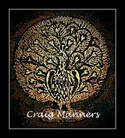|
Craig Manners
9th July 2016 Everyone has a worldview i.e. how they view and understand the world. For example, did the world just appear out of nothing and suddenly produce well designed things, order, intelligent beings and a perfect environment for sustaining life, from a "big bang?" "Nothing" accidently exploding into "everything"? An explosion creating everything instead of destroying? Like setting off an explosion in a desert and finding a skyscraper suddenly appearing after the dust settled. Or is there a "Designer?" Did God create everything as per the creation account in Genesis, the first book of the Bible? A person's worldview affects how they view human beings. Much hinges on this. Are we moral beings for one? Do we have an innate dignity worthy of respect? Or is there no such thing as morality, is that just a human construct, and therefore is it really "dog eat dog," "survival of the fittest or strongest?" If so there is nothing wrong with euthanizing your frail and sick parents to get their money, for example, or there was nothing wrong with anything Hitler did. The Genesis account of human history makes it very clear that we are moral beings, as does I would argue observational science, observing the reality of human interaction, not to mention common sense and human history. According to this account human beings are made in the image of God. God's moral character is a part of human character. As God is not neutral toward human behavior, because of His moral character, neither are humans neutral to fellow humans behaving badly. We know for instance that it is "wrong" to euthanize our parents at a whim to get their money, and we know that what Hitler did was "wrong." But how do we know this? Is there a "moral compass" built in to us? If so, who built it? If morality is a reality, what are the consequences of a society increasingly becoming compromised, by embracing as moral something which is immoral? Making laws which promote, protect and teach immoral acts as being normal and moral? Insisting and forcing citizens to stop saying that immoral acts are immoral? Introducing schools programs to "educate" children to believe that immoral acts are now moral? If human beings really are moral beings, if there really is a moral foundation upon which good society is built, what happens when the government and/or culture undermines that foundation, when it weakens the moral fibre of its citizens? Just as a little yeast spreads throughout the dough, a small crack in the foundations has the potential to topple the whole building. Surely increasingly rampant immorality, will lead to a complete validation of and increasingly widespread practice of more immoral and corrupt behavior. What impact will this have for our society? Will it be good or will it be bad? Or is there no such thing as good or bad? There is much at stake when humans who subscribe to the worldview that there is no God, no morality, that human beings are morally unaccountable and autonomous and can do whatever they can get away with, that there is no truth, no right or wrong, good or bad, start to forcefully impose what is immoral upon their fellow humans and demand that they call it moral. If the reality of morality is not respected it will not be long before our once young and free Australia is overrun by chaotic forces which will do to our society what explosives really do to things, destroy them, not create them better than they were. If you are interested in learning more about our world there is an interesting event coming up in Melbourne on 21-23rd July 2016 with Prof. Stuart Burgess, one of the world's leading design engineers in space, robotic and drone technology. For details click here.
0 Comments
Your comment will be posted after it is approved.
Leave a Reply. |
Craig MannersWhile much of what is written in this Blog may currently appear to be counter-cultural, given our post-truth culture, it is in no way counter-human beings. I am always for people no matter what they think, do, or may have done in their past. Where I put forward ideas or debate against certain ideology, behaviour, ideas, movements, politics, I remain very much on the side of the human beings even though I may be opposed to their worldview, behaviour and politics. Such opposition is generally out of concern for the ultimate consequences of such behaviour or ideas, especially for children. |
- Africa
- Reflections by Craig Manners
-
Articles by Craig Manners
- While We Wait by Craig Manners
- Written on our Hearts by Craig Manners
- Cure for Death by Craig Manners
- Perfect Justice, Perfect Mercy. Only God Could do This. By Craig Manners
- Authority By Craig Manners
- Creation and Providence by Craig Manners
- Forgiveness by Craig Manners
- All Things for Good by Craig Manners
- A Complete Education by Craig Manners
- Humans. Moral beings or not?
- Soviet Era Mass Conversion Therapy Mind Control Set to Control the West by Craig Manners
- On the Road to Adelong by Craig Manners >
- What is Christianity all about? >
- Note Pad
- To be Frank!
- A Cultural Revolution
- Wanted: Men who Understand the Times
- Grieved by the Grievance Virus
Contact Craig Manners
Copyright Craig Manners © 2016 to 2019
